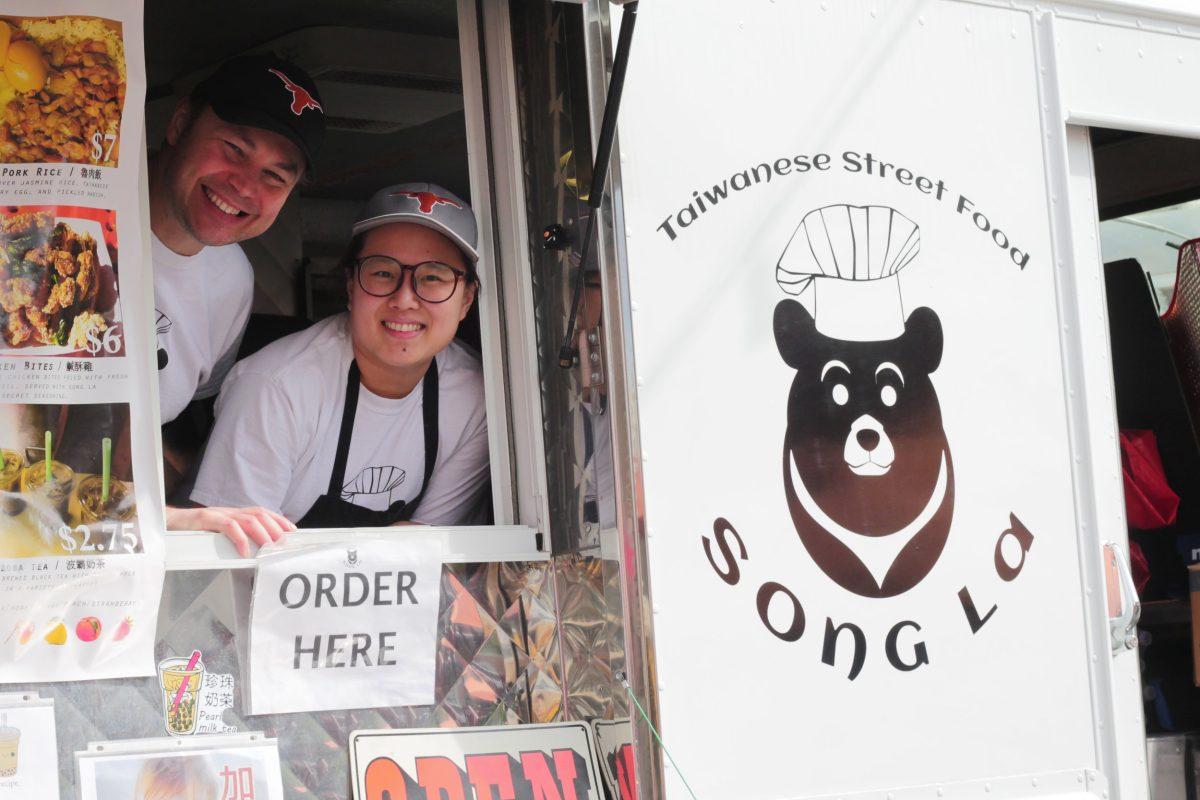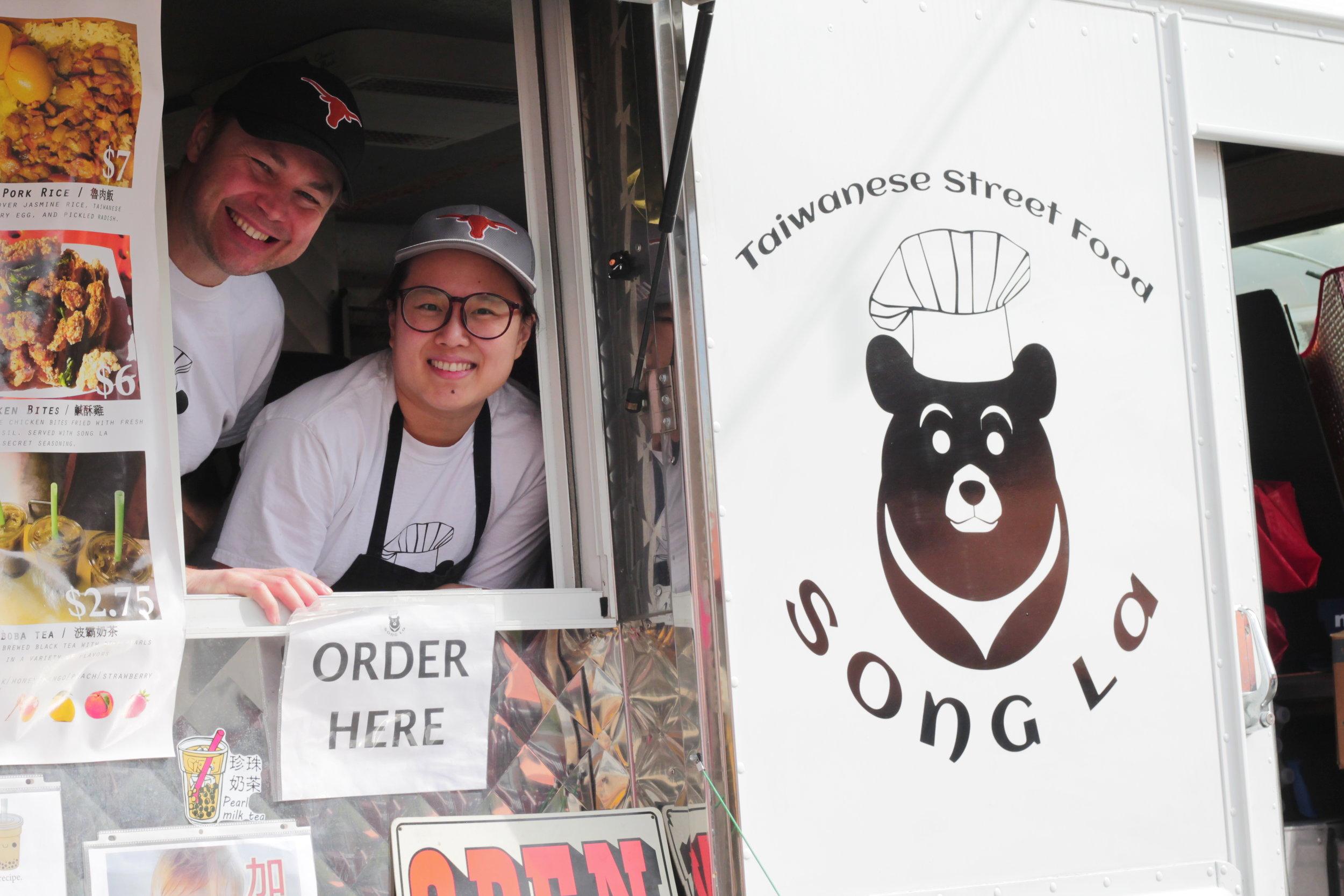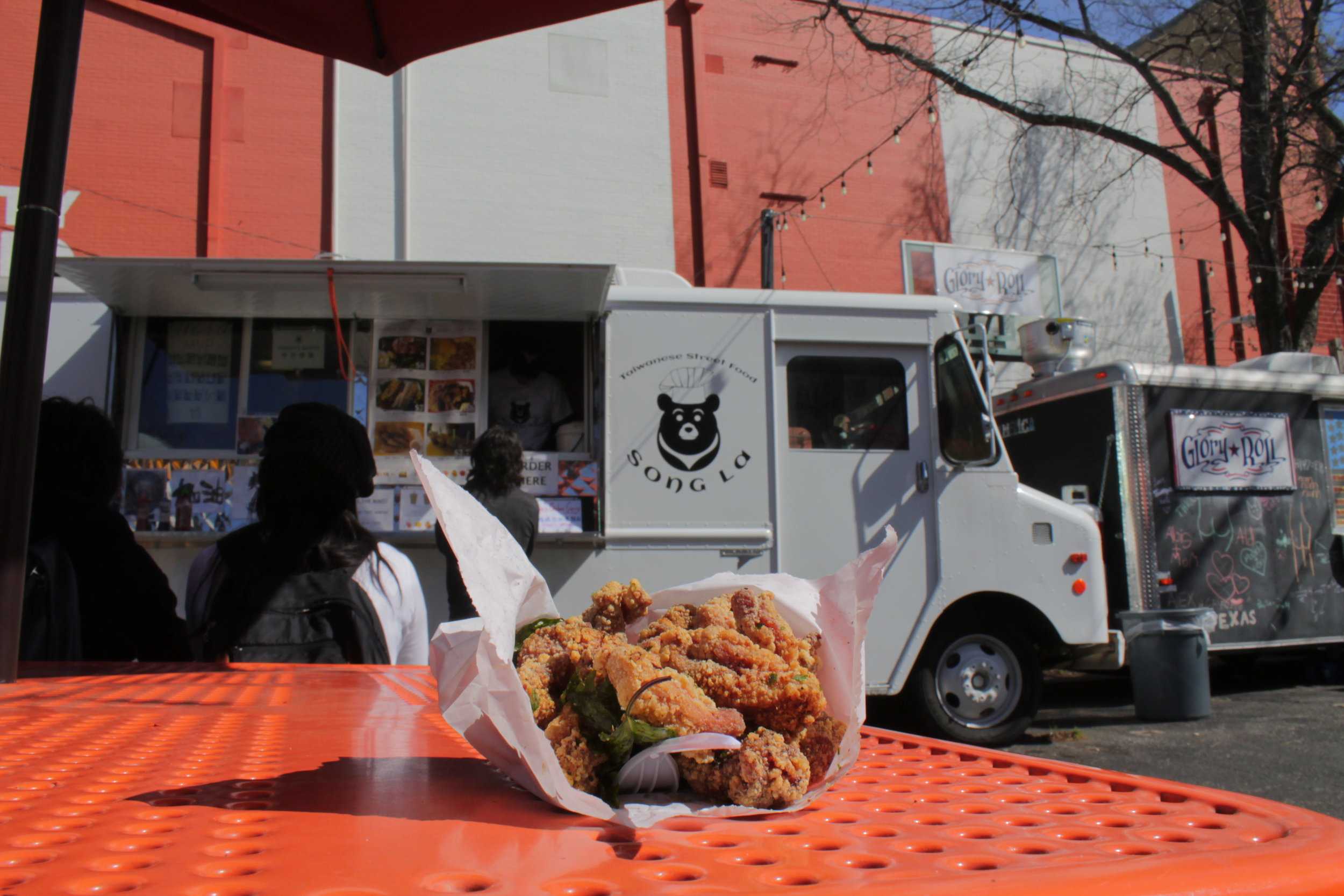Taiwanese food truck Song La is located behind the University Co-Op on 23rd St. and San Antonio St.
The name of the West Campus food truck, Song La, means “awesome” and “refreshing” in Taiwanese, but it also serves as a pun to represent the owners’ love for music.
Story by Sunny Kim
Photos by Ravin René
Aleksandr Karpets and Sun-Yun Yang opened the business in August 2015 after seeing the lack of authentic Taiwanese food in Austin. “I felt upset,” Yang says. “How are the students, if they miss home or miss mom’s cooking, going to deal with that? That’s not right. I wanted to provide them good home cooking.”
Prior to their business, Karpets and Yang started an instrumental indie band in Austin called “Into the Grove and Through the Vines.” Karpets would write and sing while Yang would play the drums and keyboards, but they realized it was almost impossible to make a living through music.
“It’s not as easy because the local market is so over-saturated with bands,” Karpets says. “We have a pretty small following whenever we play, but it’s still pretty difficult.”
Karpets and Yang dedicate most of their time to the food truck, but they still keep in touch with Austin bands such as WonFu, a Taiwanese folk-rock band formed in 1998.
They went to WonFu’s showcase at SXSW a few years ago and have kept close contact with the lead vocalist and guitarist, Yao Xiao-Min. “He is really funny and always comes up with these names and suggested the name Song La,” Karpets says.
Yang says the name Song La is meaningful because it represents their love for music and Taiwanese food.
“When you drink a beer or drink something cold or eat something good, you will say ‘Song La’ in Taiwanese,” Yang says. “At the same time, it’s music related because you say ‘la la la,’ when you sing a song, so it’s perfect, especially when combined with Taiwanese food and music.”
Xiaoou Suo, 30, graduate from St. John’s University, says she likes the food truck because it’s convenient and cheap. She says the braised pork rice is her personal favorite because there’s a lot of meat and vegetables, which makes her feel more healthy. “Song La tastes really good. The only downside is that they sell out too fast,” Suo says.
Asian studies junior Lindsey Kanve says her favorite menu item is the chicken bites bento. “I would say I come here pretty often,” Kanve says. “It’s pretty close to campus and I’m at the Union all the time. It’s also pretty cheap and you get a lot of food for (the price).”
One of Song La’s popular items are the chicken bites drizzled with a special mustard sauce.
Despite the success of their food truck business, Karpets and Yang, who are the only employees working at Song La, says most people don’t understand the amount of work they put into maintaining their business. Song La is open on weekdays from 11 a.m. to 3 p.m., but the work doesn’t stop after business hours. “The food is very complex, there is so much, and a list of ingredients, so we cannot really trust somebody to do that, so we have to be very careful with how we hire,” Karpets says “But, we’re definitely under pressure to hire people because this semester has been so busy.”
Yang says that most of their time spent outside of Song La includes grocery shopping, prepping their braised pork or cleaning the food truck. “Minus the time you sleep, the rest is prep, prep, prep,” Yang says.
It’s hard work, but Yang says it’s worth it because of the close relationship she has with her customers. “Some call me ayí, like aunt in Chinese, Some call me jiĕjie, which means big sister,” Yang says. “When they call me that, I feel like they see me as their own family too.”
In the future, the owners are hoping to expand their business by adding another truck and possibly a new menu with different Taiwanese street food.
Yang says a lot of her customers bring their parents, grandparents and girlfriends to their truck, which encourages her to continue cooking for them. “I enjoy being here,” Yang says. “I chat with the kids, and even when it’s busy I try to open my window and say, ‘What’s going on? How’s your work? How’s your school?’ I really like the relationship between us and the customer. Of course there’s stress every day, but it’s worth it.”













































